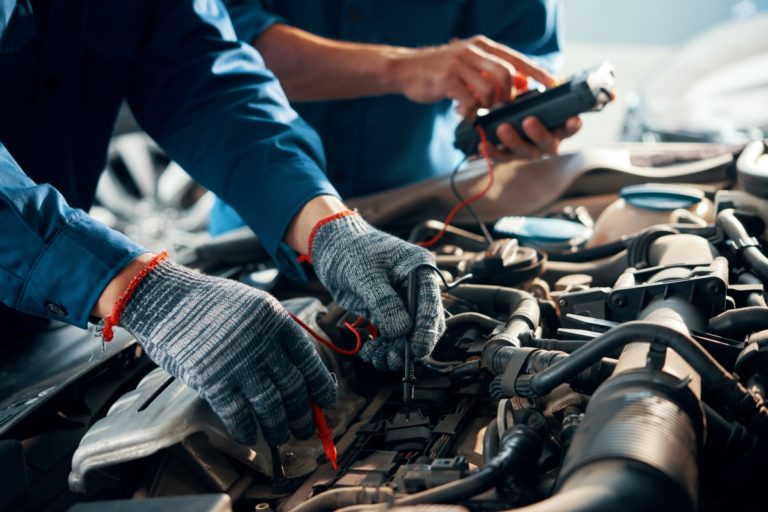This article originally appeared in the State House News Service by Katie Lannan.
Tufts Researchers Take No Position on Auto Repair Question
A vehicle data access question on the November ballot could promote competition in the car repair industry but is “not likely to produce large, near-term benefits for mechanics,” according to a new analysis from a Tufts University think tank.
The report from the Center for State Policy Analysis at Tufts’ Tisch College explores issues around the initiative, noting that heavy spending and active campaigns both for and against the question suggest that “both sides see real stakes.” It also recommends steps state lawmakers could take to smooth implementation if the question passes, and other changes they might pursue around telematic data if it comes up short.
The report’s authors suggest thinking of the question as the latest chapter in a cat-and-mouse game “where manufacturers and dealers gradually tighten control over repair information, while [independent repair shops] fight to regain access or seek workarounds.” They do not take a position on whether the question should pass.
Question 1 centers around access to the telematic data collected by wireless systems in newer cars, and would update the so-called “right to repair” law approved by voters in 2012. If passed, it would require the manufacturers of cars sold in Massachusetts to provide owners and independent mechanics with access to telematic data related to maintenance and repair, through a standardized data platform and a mobile app.
“How much this will matter on the ground is unclear. As yet, telematics systems don’t seem to contain large amounts of repair-relevant data,” the cSPA analysis says. “And the 2012 right-to-repair question — which arguably provided access to a more substantial cache of repair-relevant information — didn’t produce a dramatic shift in employment or wages at Massachusetts repair shops. But Question 1 also has implications for the future, potentially curbing automakers’ incentive to move repair information into the telematics system as a way to maintain control.”
Office of Campaign and Political Finance records show that the committee backing the question has raised more than $21.4 million and spent nearly $16.7 million, while the opposition group has taken in almost $25.8 million and spent more than $15.5 million.
The cSPA report flags a series of points it recommends voters consider, including “extremely tight” deadlines that would require automakers to implement the new data-sharing system beginning with model year 2022, and the question’s focus on data “related to the diagnosis, repair or maintenance of the vehicle.”
“So long as GPS and other privacy-related information is excluded — as it seems to be — concerns about data misuse are greatly diminished. Some risks remain, however, including potential exploitation of the system for remotely updating your car,” the analysis says.
The researchers said that independent repair shops are less likely than automakers or dealers to have “robust IT systems or sophisticated security policies,” potentially creating new channels that could allow hackers to access telematic vehicle data. They said, however, that unauthorized access to information like tire pressure or airbag deployment data “wouldn’t expose the same kind of personal details as unauthorized access to your GPS-tracked movements,” and the ballot question “seems to rule out the sharing of most sensitive information, including GPS data.”
The ballot question would require telematic data to be accessible through a mobile app, but “does not specify who will build these apps or how they should operate,” the report said. The researchers suggested that the Legislature could authorize a government agency or independent group to “set a workable timeframe for implementation and then track compliance, including around the creation of smartphone apps.”
Other steps that cSPA said lawmakers could take to facilitate implementation if the question passes include developing a code of conduct around the storage, usage and sharing of data, and clarifying whether independent mechanics would need to meet any training or licensing requirements to gain access to telematic data.
Changes that lawmakers might consider if Question 1 fails include strengthening “the recourse process for independent mechanics who are inappropriately blocked from accessing data they are legally entitled to see” and investigating “how automakers are gathering, storing, using, and potentially selling telematics data, the report said.




